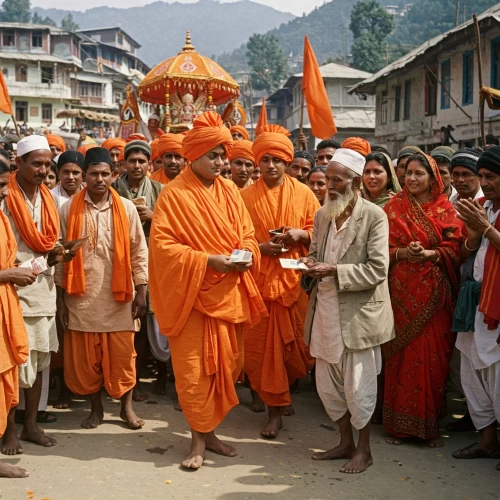The Monk, the Fakir, and a Cucumber
Swami Vivekananda and his brother-disciple Swami Akhandananda were once traveling on foot near Almora. About two kilometers from the town, exhausted and famished, they sat down to rest. Swamiji, drained of energy, lay down on the ground, too weak to move. Seeing his condition, Akhandananda went off in search of water.
Nearby was a Muslim cemetery, guarded by a humble fakir named Zulfiqer Ali, who lived in a small hut on the grounds. From a distance, he noticed the frail monk lying motionless. Without hesitation, he entered his hut and brought out the only food he had—a single cucumber.
Approaching the monk with quiet compassion, he offered it. Swamiji opened his eyes and whispered, “Please… put it in my mouth.”
Startled, the fakir hesitated. “But I’m a Muslim,” he said, “How can I put this into the mouth of a Hindu monk?”
Swamiji, too weak to lift his head, replied with a faint but profound smile:
“It is all right. We are all brothers in the Divine.”
The fakir gently fed him.
—

Seven years passed. Swami Vivekananda returned to Almora—now a world-renowned spiritual leader. The entire town turned out to welcome him. A grand procession was held in his honor.
As they passed near the old cemetery, Swamiji noticed the same fakir standing at a distance, watching silently, unaware of the identity of the man being honored.
Swamiji paused the procession, waved to the fakir, and called him forward. As the bewildered crowd looked on, Swamiji introduced the man with deep reverence.
“This man once saved my life,” he told them. “At a time when I was starving and helpless, he fed me with the only food he had.”
He then asked the crowd to contribute generously and personally handed the fakir the collection, expressing his eternal gratitude.